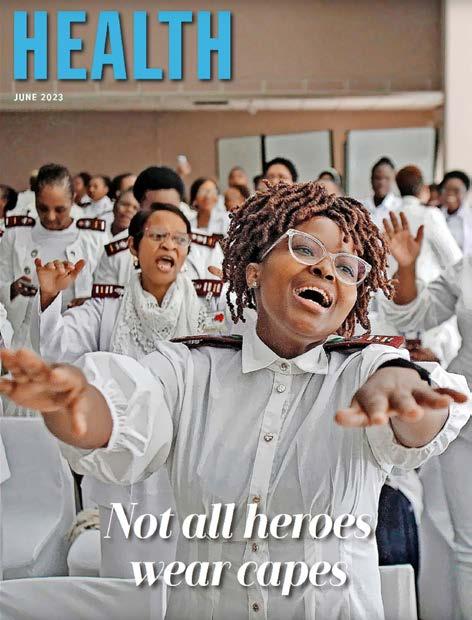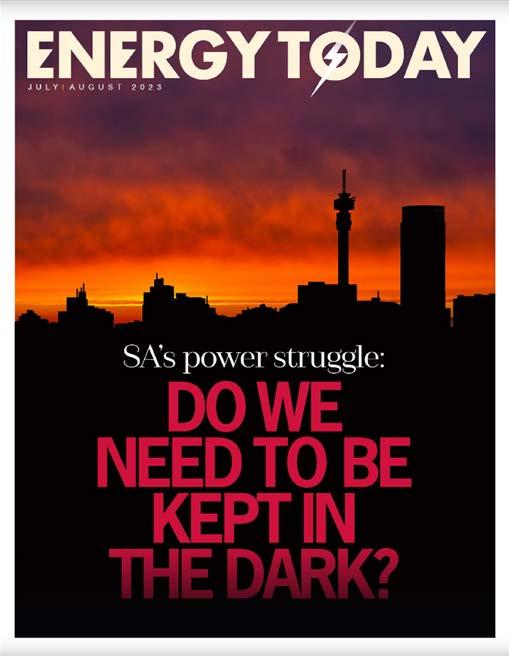RACIAL AND GENDER TRANSFORMATION IN THE SOUTH
AFRICAN PROPERTY SECTOR IS VITAL PAGE 3



UNIVERSITY of KwaZulu-Natal (UKZN)
academic Professor Hangwelani
Hope Magidimisha-Chipungu has propelled herself to the top of her field and made history as the first black woman in South Africa to obtain full professorship in the discipline of town and regional planning.
With a passion for creating cities that are more inclusive, smart and resilient, Magidimisha-Chipungu is making great strides in her field. In her role as founder and chief editor of the Journal of Inclusive Cities and Built Environments, MagidimishaChipungu actively advocates for urban environments that cater to the diverse needs of their inhabitants.
“I share a vision with many to create positive urban transformation for the benefit of all people. I am an eternal optimist and believe that greatness can be achieved through hard work, dedication and an unwavering commitment to creating positive change in our cities and societies,” she said.
In a recent interview with Bonny Fourie from IOL, she added that to achieve inclusivity in our urban areas, the most affected groups, as identified through research, “should be at the centre of our planning system as there will be no meaningful inclusivity without them”.
Urban areas in South Africa are plagued by persistent spatial segregation, inhibiting efforts toward greater inclusiveness.
Challenges related to diversity insensitivity during urban planning further erode communal bonds, Magidimisha-Chipungu said.
“Rural towns and secondary cities are among the worst-affected urban areas, reflected by the exodus of people from these urban areas to bigger cities which are perceived to be doing better in terms of offering a better quality of life to many citizens.”
I n South Africa’s urban areas certain design elements
discourage inclusivity. These, she says, include:
✦ Historical spatial segregation
✦ nadequate public transportation
✦ Lack of universal design for people living with disabilities
✦ Unequal access to services
✦ A shortage of affordable housing
✦ Cultural insensitivity
✦ nsufficient public spaces
✦ The digital divide.
The elements are common from big cities to small rural towns across the country.
Addressing the issues requires comprehensive urban planning, policy changes and community involvement in order to promote accessibility, affordability and diversity for all residents.
“To promote inclusivity, cities can focus on integrated housing, improved public transportation, mixed-income neighbourhoods, universal design, upgrading informal settlements, protecting affordable housing, involving communities in planning, and bridging the digital divide.
“Collaborative efforts involving governments, planners and communities are crucial for making urban areas more inclusive and accessible,” Magidimisha-Chipungu said.
Cities often reflect the societal norms and values of their time and historically, many urban areas were designed with a focus on the needs and preferences of men. Added to this, South African city designs have often neglected black people’s rights and needs.
“Women, and black women in particular, are among the worst affected in this regard, however there’s a growing awareness to design gender-inclusive urban area “Achieving gender-inclusive cities involves addressing safety, representation in planning and breaking gender stereotypes in design.”
IN SOUTH Africa, women make up 51% of the population but their representation in leadership positions is less than 24%, with African women accounting for less than 4%, says Property Point founder Shawn Theunissen.
In an effort to promote woman empowerment, Property Point, in collaboration with Growthpoint Properties, successfully graduated the inaugural cohort of woman-owned businesses, within the predominantly male-dominated property sector, via its SHE Builds programme.
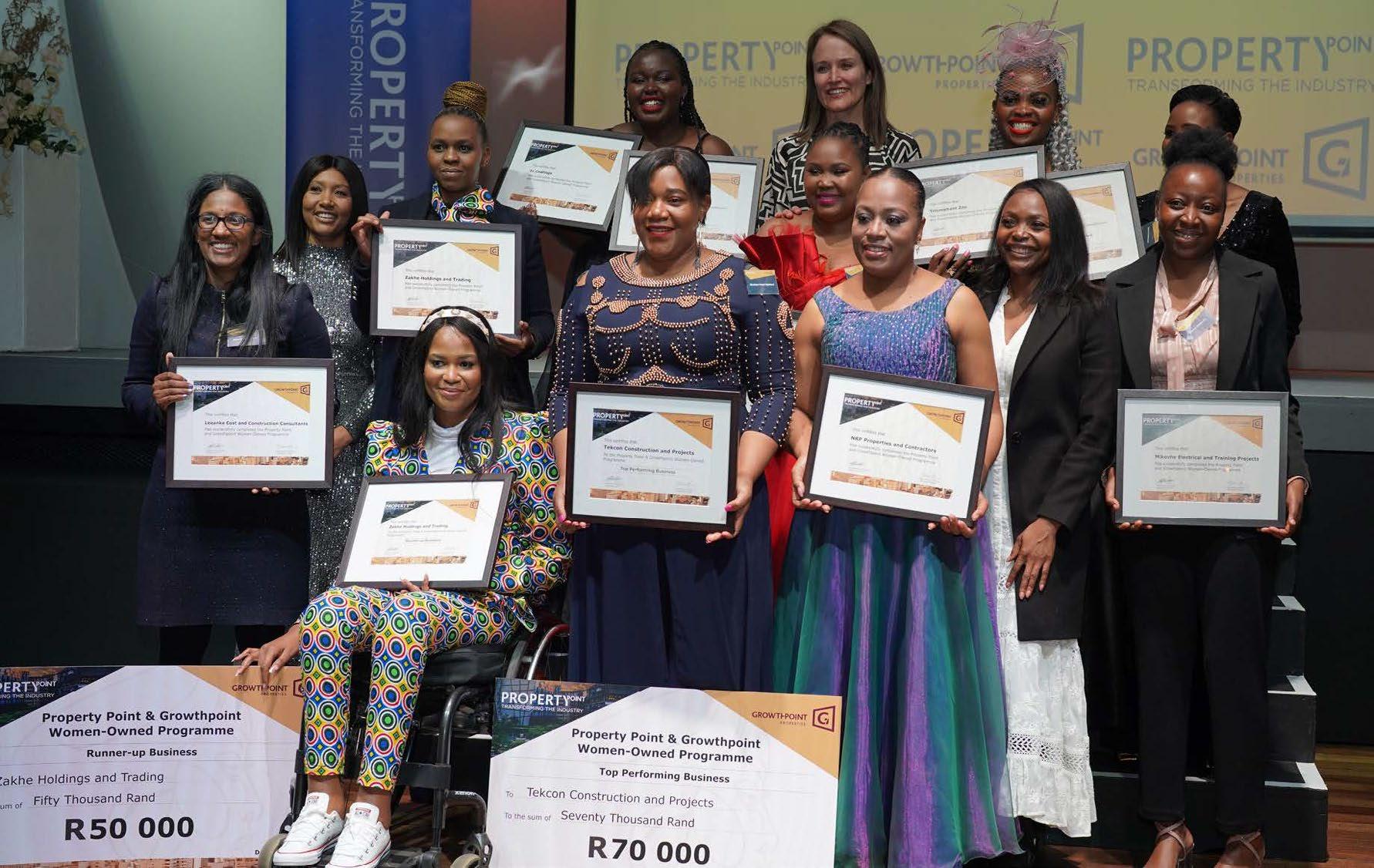
The inaugural woman-owned enterprise and supplier development programme aimed to foster the establishment of sustainable womanowned businesses that can compete on merit in an industry that is predominantly male-dominated, says Theunissen.
The 11 female entrepreneurs under its umbrella have collectively earned R122 859 998 in revenue, with an impressive revenue growth rate of 100%.
The businesses received contracts worth R6 952 704 as a result of the programme, resulting in the creation of 45 full-time jobs and demonstrating women’s enormous potential in generating employment prospects and promoting economic advancement.
Estienne de Klerk, the CEO of Growthpoint Properties South Africa, said the graduating class s accomplishment was a testament to the transformational potential of empowerment-focused initiatives to promote development.
“It has been a pleasure to see the entrepreneurs resilience and brilliant minds. Their achievements have enhanced their businesses, lives and proved the life-transforming power
of partnerships.”
Property Point, working alongside with Growthpoint Properties, addressed major difficulties faced by women entrepreneurs: lack of access to markets, lack of capital, limited social networks, and cultural limitations such as gender roles.
“We firmly believe that inclusive transformation is one of the cornerstones of sustainable economic development,” Theunissen sys
Our relationship with Growthpoint Properties, a pioneering leader in the property sector, has been critical in understanding the specific needs of female entrepreneurs in the industry.”
SHE Builds emphasis on developing critical skills and providing required resources has been vital in giving women entrepreneurs the tools they need to run successful enterprises.
Pearl Ngobeni, the founder and CEO of Tekcon Construction & Services, a general building construction and furniture manufacturer, was chosen as the overall winner, having ranked top in company performance over the previous two years.

“Knowing that our company is heading in the right direction means so much to me,” Ngobeni said.
“We are checking all the boxes in terms of finances, administration and, most importantly, contributing to societal and economic transformation through job creation.
“The assistance I received from Property Point enabled me to give back to my community through the group I founded to assist orphans.
I also want to help other women by preparing them to establish their own businesses. I run with courage from here!
1. Pearl Ngobeni: Tekcon
Construction & Services – general building construction furniture manufacturer
2 Lucia Mabuza: Isigodlo
Investments – construction management, property development, property valuation
3 Puleng Tubane: NRP Properties & Contractors – office refurbishments, tenant installations, specialist painting, general building, drywall partitioning
4 Thirusha Moonsamy: Leeanka
Cost and Construction Consultants
– quantity surveying, property valuation, project management, facilities management, town planning
5 Sbahle Tshivhase: Lugisani
Development Projects – facility management, general building maintenance & repairs
6 Tryfina Kgokong: Triumphant Zoe – quantity surveying, property development, cost management, refurbishment & value engineering, project management
7 Elekanyani Ndlovu: Mikovhe
Electrical – electrical maintenance, project & engineering management, transformers & auxiliary testing
8. Suzan Motlhabane: Lokissa Business Solutions – electrical services
9 Gugulethu Mbatha: In Coatings
– Painting, Wall Coatings, Paint Manufacturer, sales
10. Itumeleng Mosupi: Zakhe Holdings and Trading – general construction, civil works
11 Mamokete Dhlamini: MEP Plants & Décor – gardening, indoor plants & cleaning, facilities management, waste management
MICHELLE DICKENS, the CEO of PayProp South Africa, a residential rental payment processor, writes: This Women’s Month, it’s incredible to see the impact women are making in the real estate industry on all sides of the sale or rental transaction.
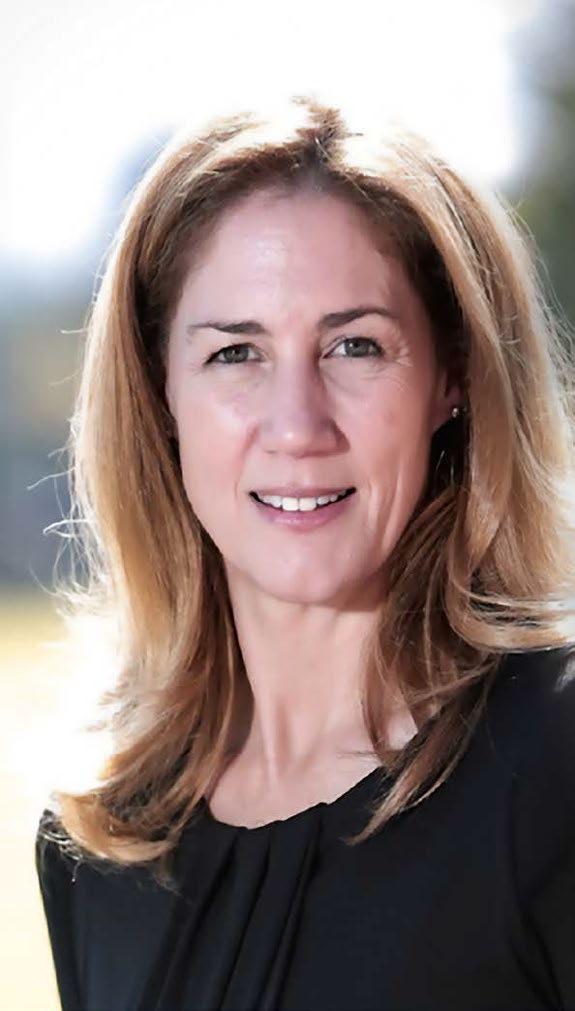
By the end of July last year, according to Lightstone, women owned 57% of the total volume of properties in the market. Women also made up 66% of realtors, 61% of broker licensees and 68% of sales agent licensees.
In the residential rental sector, the numbers are even bigger. More than three quarters of the property professionals who responded to PayProp’s most recent State of
the Rental Industry Survey were women.
That’s all the more remarkable when you consider that many women were denied the right to own land and property until 2021.
This month, we celebrate four powerhouse women – Lillian Ngoyi, Helen Joseph, Rahima Moosa and Sophia Williams – who led 20 000 others to demand their rightful equality in 1956. But it wasn’t until 2021, when Agnes Sithole took her fight to keep her matrimonial home to the Constitutional Court, that all women could feel secure in their homeownership rights.
Without the right to own land and property, a woman’s
economic and physical security and future will always belong to those who can
How much pressure did the women take upon themselves to bring about change and progress?
They, and those who marched with them, took on the burden of changing the Constitution, perhaps without even knowing that is where their courage would lead.
But how many of us now shy away from building anything?
Women’s Month is surely worthy of ringing out a call to lay new foundations; to push forward a cause; to rise up.
There is progress to be fought for in our industry. Female representation in administration and rental management is high,
and we’ve seen an increase in female ownership of properties, but there’s work to do in terms of getting equity into the hands of female business owners.
There are also differences across different types of real estate – commercial property versus residential property versus construction – and female representation in the residential sector is higher than it is in construction, for example.
As women, we are aware that we did not arrive here on our own. We can honour those who went before us by in turn advancing the horizons of freedom and building our hopes and dreams on the ever-expanding landscape of innovation, progress and equality.
‘Give us wings and we will fly’
WE STILL HAVE SO MUCH TO DO
BLACK WOMAN RISING AND CHANGING THE BUILT ENVIRONMENT
THE QUESTION of racial and gender transformation in the South African property sector can often feel like time-worn dialogue, with the conversation remaining as stagnant as the slow progress in the industry.
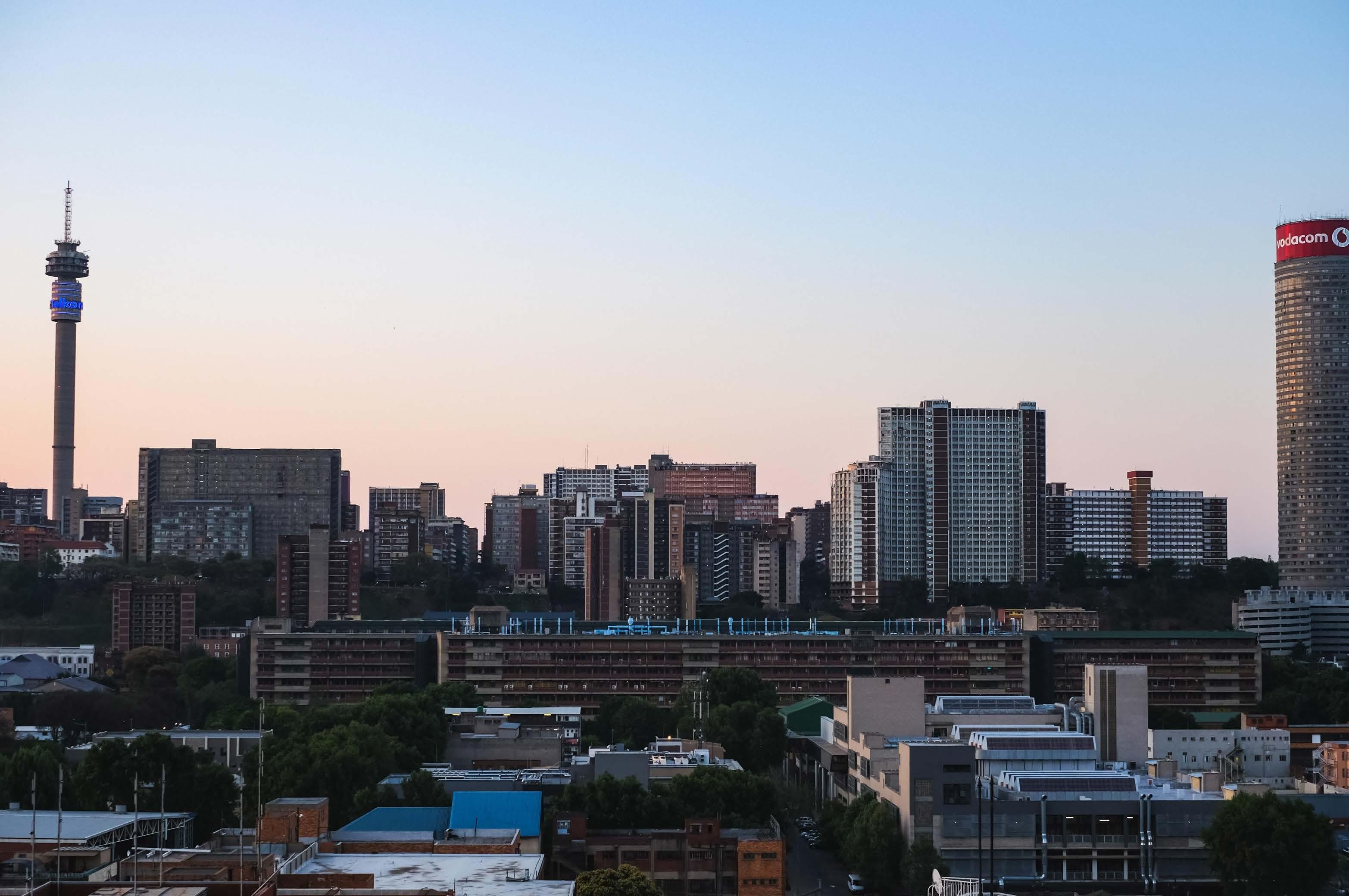
The sector, sadly, remains one of the least transformed in the country, displaying marginal shifts in key areas.
Better progress in racial transformation can be achieved through ownership, management control and skills development. These elements, coupled with employment equity, can make an observable change in gender inclusion and thus, inclusive economic growth.
These are not new arguments as the South African Institute of Black Property Practitioners (SAIBPP) has been advocating for years that a piece of the R5.8 trilllion property pie be spread equitably on a racial and gender basis. However, 30 years into democracy, the sector remains in the hands of the minority.
Ownership of land has been promoted by the SAIBPP as one of the most powerful means to realise transformation in the industry as land holds value in many ways.
Not only is it invaluable in securing one’s right to shelter, as purported in our constitution, it also enables commercial business operations, fashioning a vibrant stage for economic trade.
This would lead to economic growth because it is easy to conclude that the

inclusion of black participants, particularly women, would expand performance in the sector.
Recent reports show that as much as 64% of the transformation target has been achieved in ownership, yet when one looks closely, the figure is not indicative of direct property ownership. In fact, general sentiment among transformation propellers in property is that transformation is not as advanced as the Broad-based BEE scorecards may suggest.
Though this is a credible approach to quantify different aspects towards transformation, we at the SAIBPP would like to see a purpose-driven approach that measures direct impact where the physical representation starts to display racial and gender inclusion.
Much of the difficulty in achieving the direct ownership targets envisaged by the SAIBPP, can be attributed to lack of access to finance where the required equity for participation in transactions is not easily achievable for black participants.
This is an area that the financial sector can participate in meaningfully to reassess the models around risk allocation and adopt uniform lending rates that are applied consistently for all races.
It is also key to shine the light on some players in the funding sector who have started to generate solutions around raising equity and pricing for funding at inclusive rates.
AYANDA MAGQAZA is the chairperson of the SA Institute of Black Property Professional’s Women’s Forum and board member at the SAIBPP. She is in development management, and is the founder of a built environment consulting company, Tasksmiths Consulting, offering project management, development management and quantity surveying services.
Magqaza launched her career at Basil Read, at the developments division, as a project/ development manager and property expert.
 BY AYANDA MAGQAZA
BY AYANDA MAGQAZA
A great number of the stakeholders have formed part of the SAIBPP Funding Directory initiative, aimed at disseminating credible information about market players who are innovating for affordability in the lending space.

Though one can point to slight shifts in racial and gender representation relating to the appointment of independent nonexecutive directors, it is safe to say little effort has gone towards improving black participation at executive directorship and management level.
The numbers are jarring, indicating that in 2021, 13 of the 24 listed REITS had 100% white male executive directors.
This shows that transformation has been slow because great effort has gone into masking representation and creating cosmetic nuisances that make for palatable reporting.
The exclusion of women in the industry arises from multifaceted reasons, including discriminatory practices around pay parity, inadequate mentorship and training as well as masculine-dominated work environments that do not support the upward mobility for women.
At the BRICS Women Business Alliance Conference in Durban this past weekend, Minister of Women, Youth and Persons with Disabilities Dr Nkosazana Dlamini Zuma said: “Women inclusion is an imperative for economic growth.”
She mentioned that closing the gender gap could improve the gross
She played a key role in the project/development management of Cosmo City, a 1100 hectare integrated human settlement in Johannesburg. Later, she joined the Savanna City Development in the same capacity before venturing into entrepreneurship.
Magqaza holds a Master’s of Commerce in Development Finance from the University of Cape Town Graduate School of Business and a Bachelor of Science with Honours in Property Studies from the University of the Witwatersrand.
domestic product by 35%.
This shows that demanding the inclusion of women in the economy is not just a recognition that women are capable and deserve to become an integral part of the economy by right, but it is also an economic imperative that would benefit all South Africans by boosting the GDP.
To catalyse change, there must be greater emphasis on enforcement of policies that foster wider representation of women in leadership.
This can be further supported through implementing skills development programmes that replenish the urgently required skills in industry.
As we observe Women’s Month, the SAIBPP is incredibly proud and excited to have Mrs Fundi Mazibuko as our newly inaugurated president for the next two years.
As an experienced professional in the property industry who has experienced the sector through a female lens, we anticipate her programmes and policy initiatives to also consider the above.
In a nation where women constitute more than half the population, it’s untenable to drive sectoral value while sidelining them.
Gender transformation isn’t merely an industry concern; it’s a fundamental step towards a more inclusive and prosperous South Africa for all.
An equitable property sector is possible. I have hope.
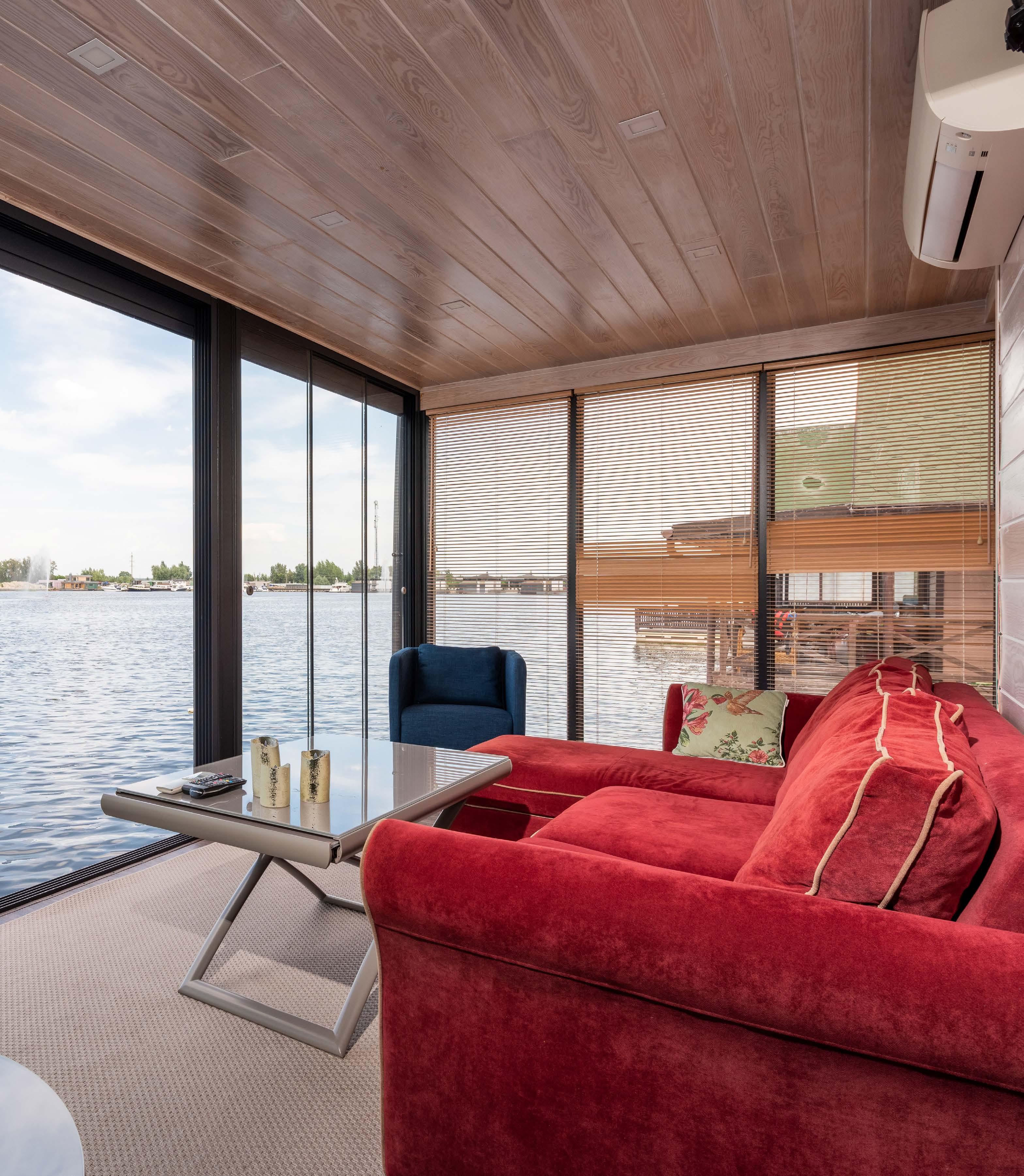
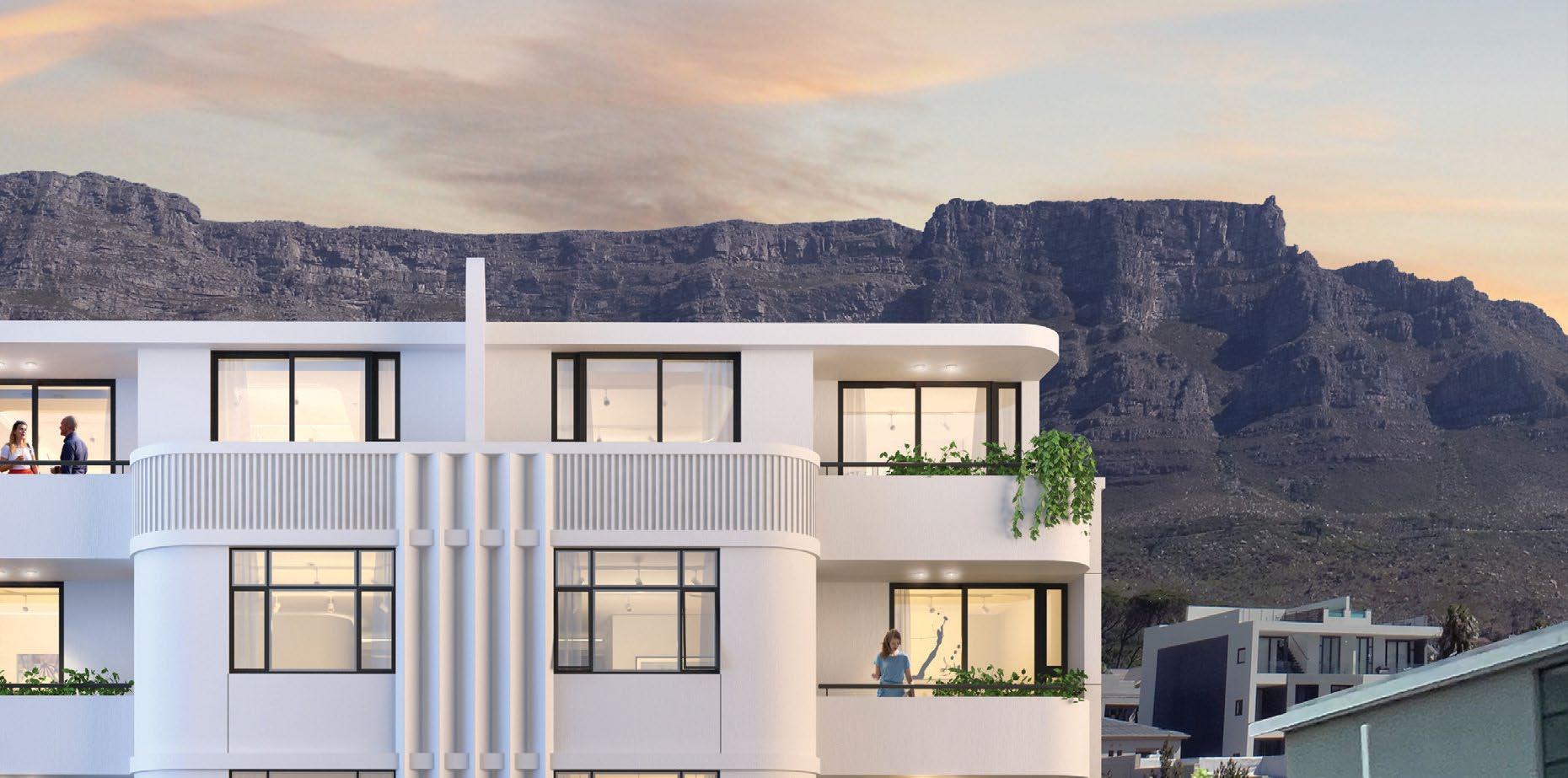

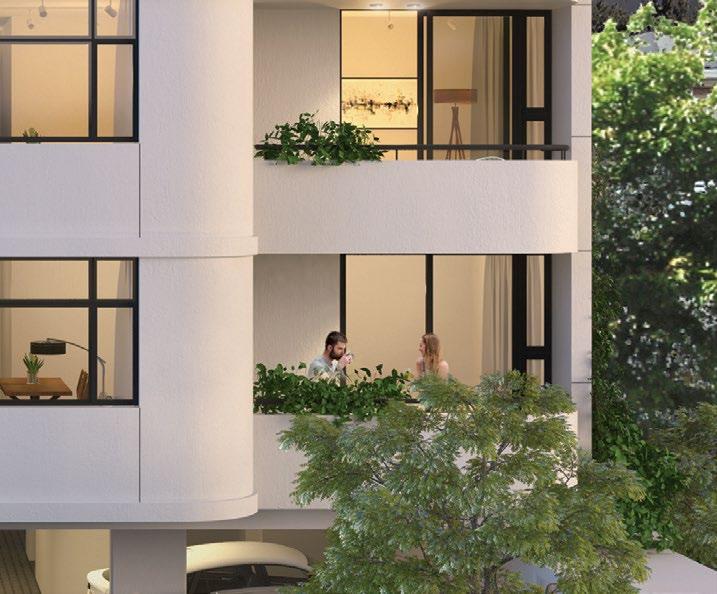










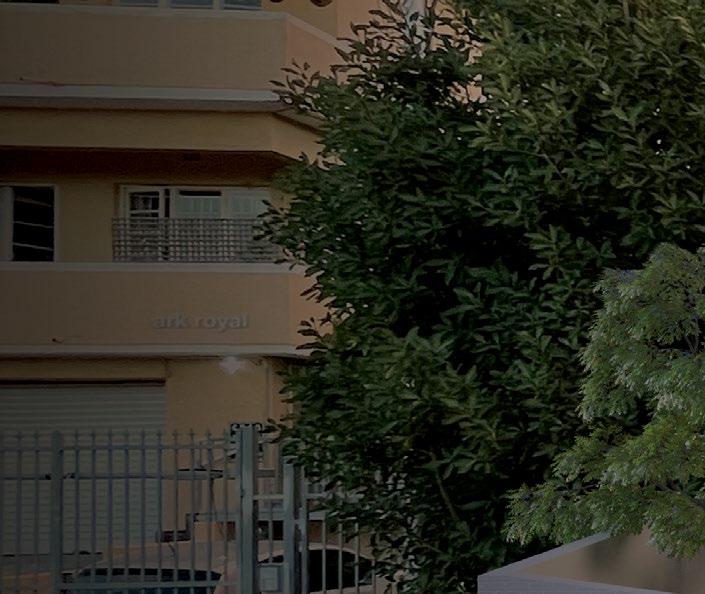

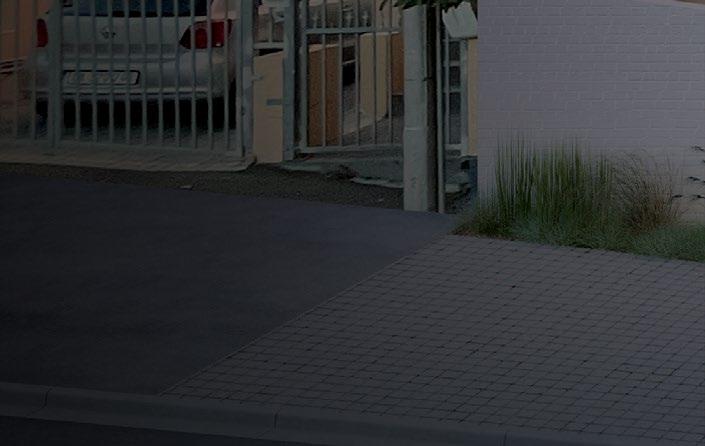














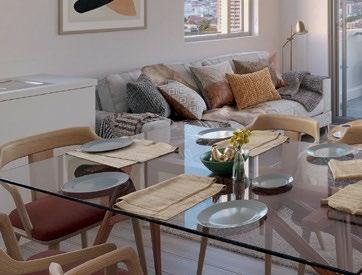





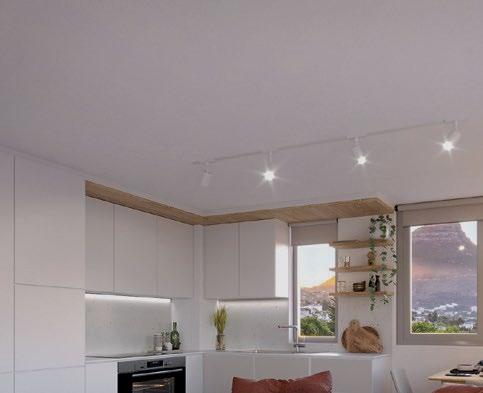


















































































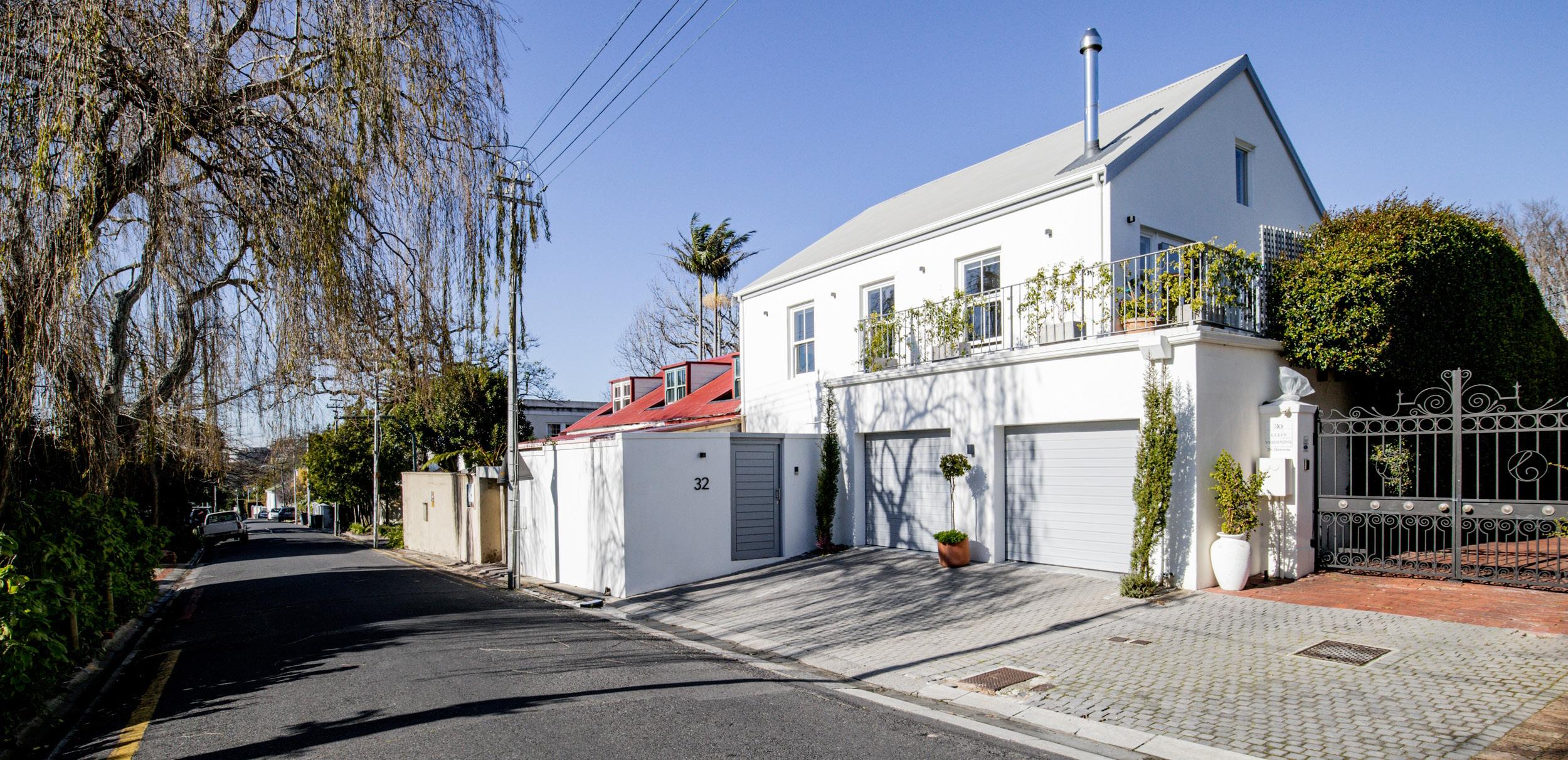
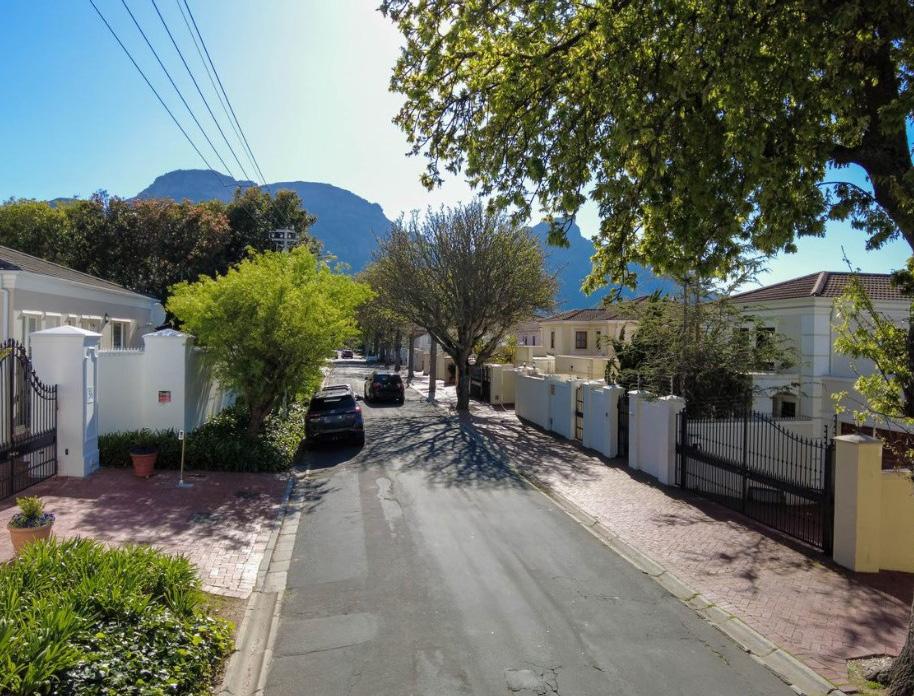
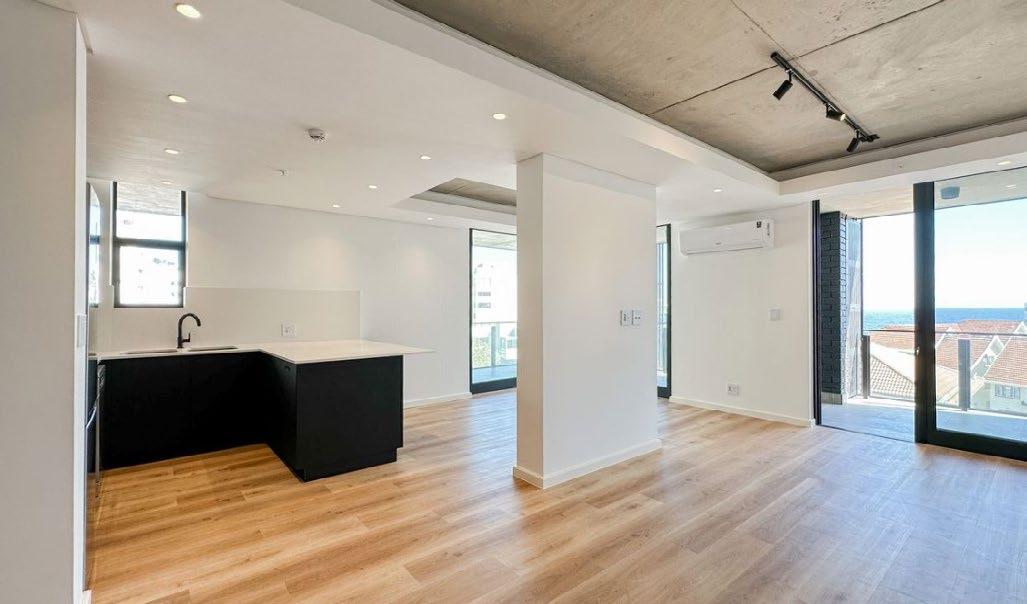
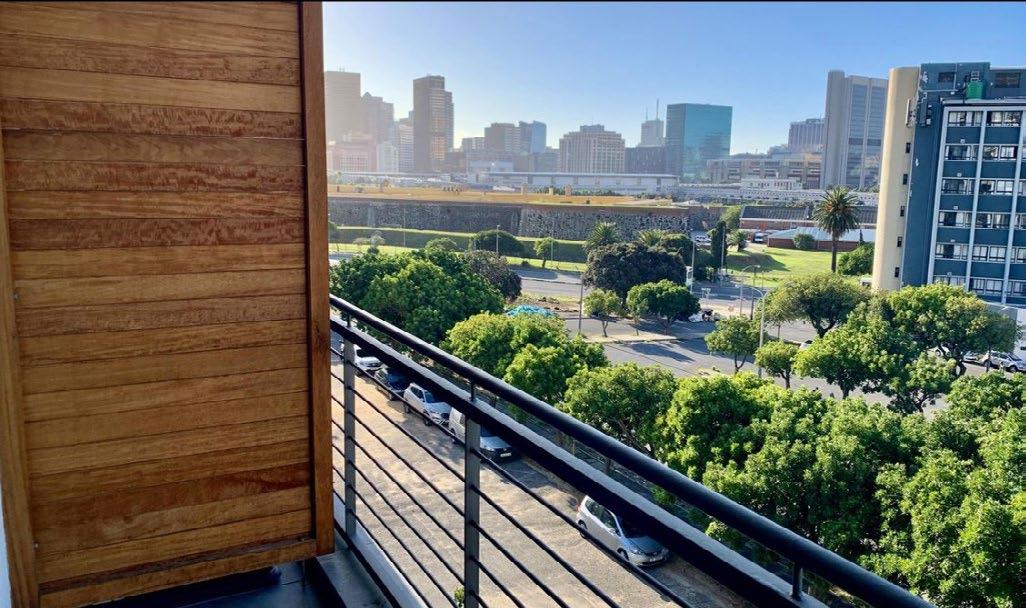

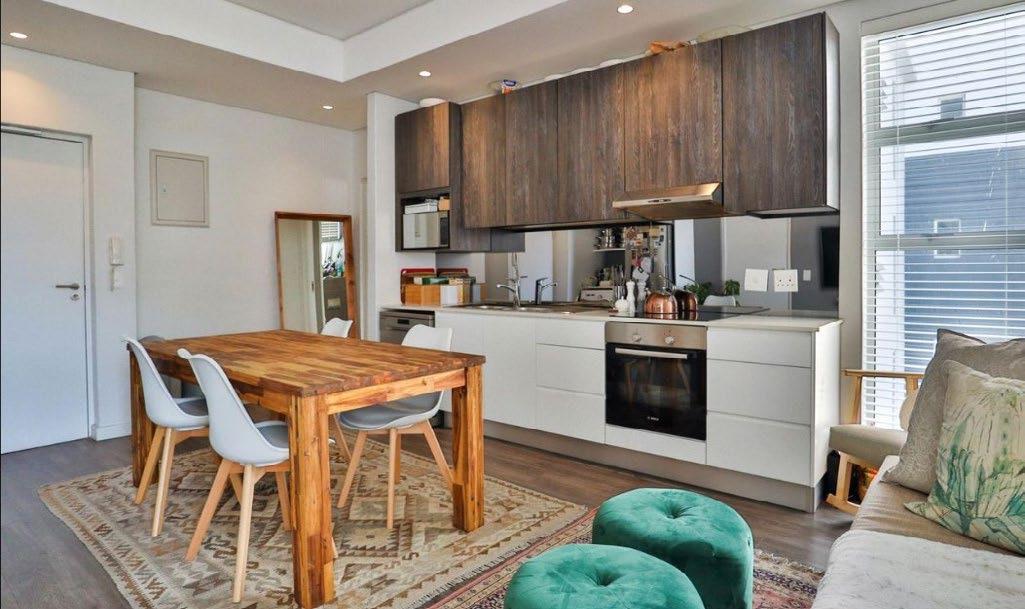

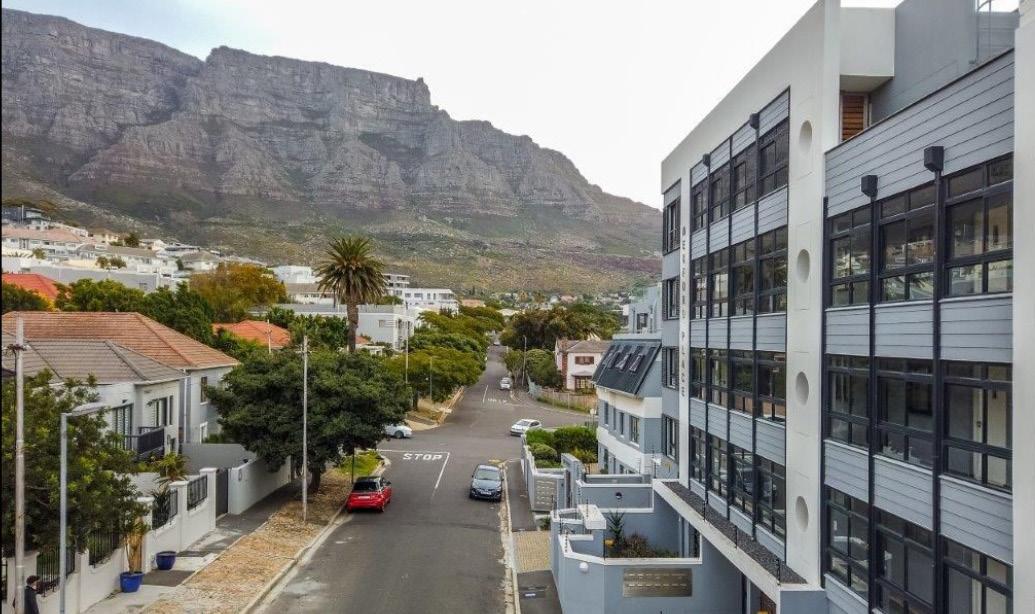




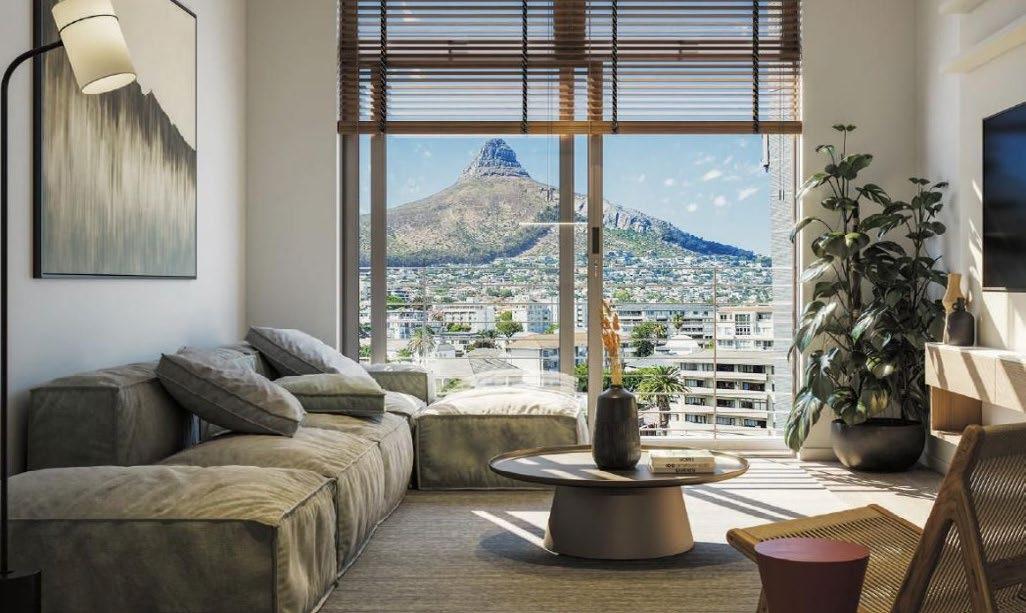




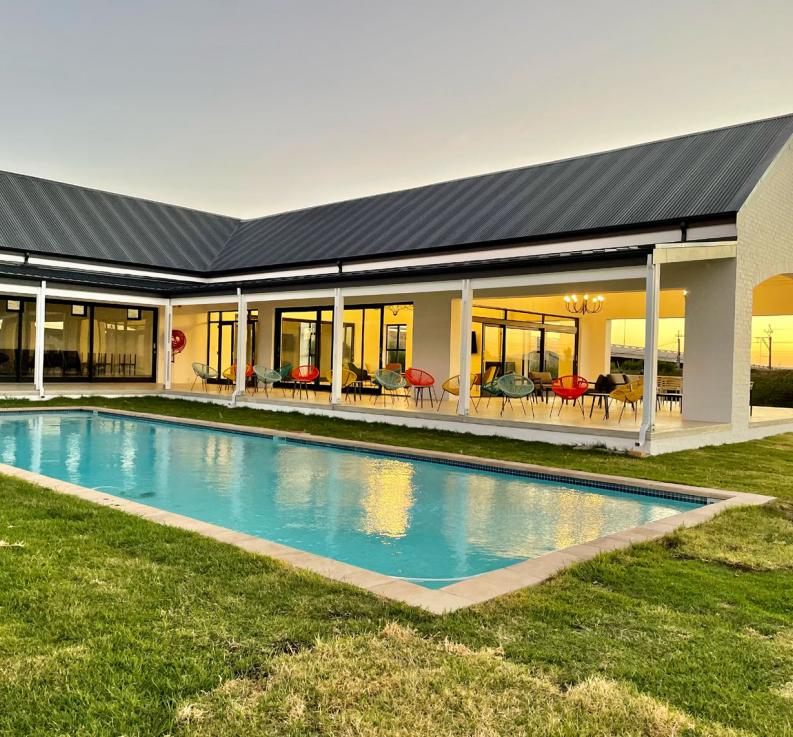
R 2,895,000

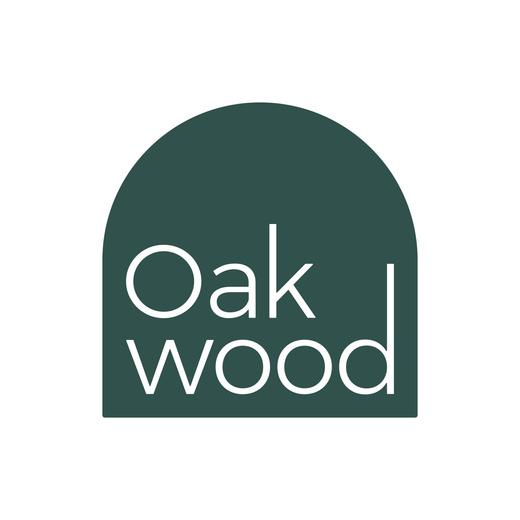

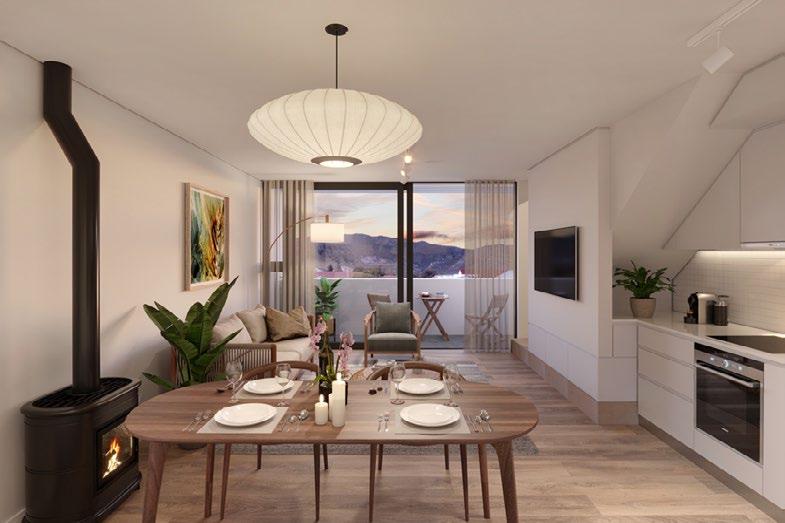
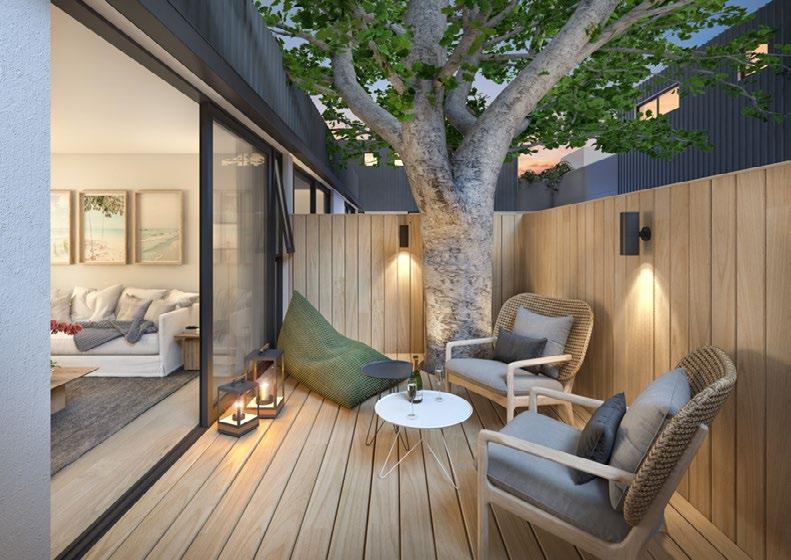
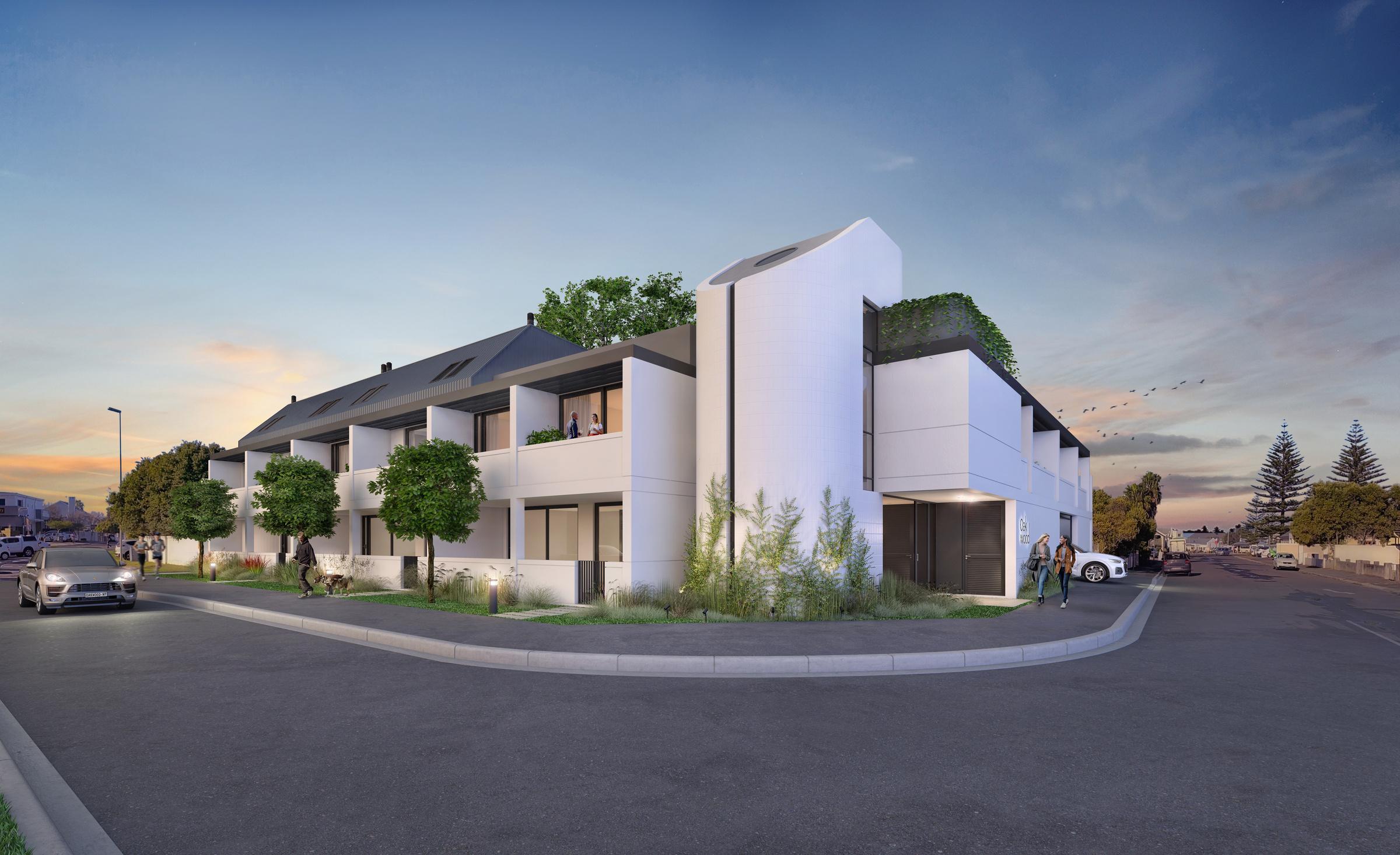
F O R S A L E I N
T H E H E A R T O F H E R M A N U S
O A K W O O D Q U I C K F A C T S
1 3 A p a r t m e n t s & 3 O f f i c e s P r i m e C e n t r a l L o c a t i o n S e c u r e P a r k i n g & S t o r a g e C o m m u n a l P o o l & B r a a i D e c k
1 0 D i r k i e U y s S t r e e t w w w . o a k w o o d h e r m a n u s . c o . z a

s a l e s @ h o r i z o n c a p i t a l . c o . z a

R 1 295 000
2 BEDROOMS | 2 BATHROOMS
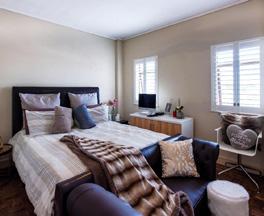
SPACIOUS APARTMENT IN DIEP RIVER.

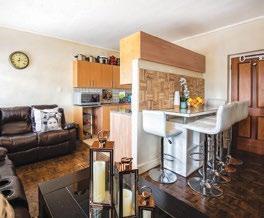
2 bedroom 2 bathroom apartment in Clarewood, Diep River, a short walk to the station, Martins Bakery and other local amenities, above the railway line.
• Fitted kitchen with electric oven, hob and extractor and plumbing for washing machine.
• Open-plan lounge with parquet flooring
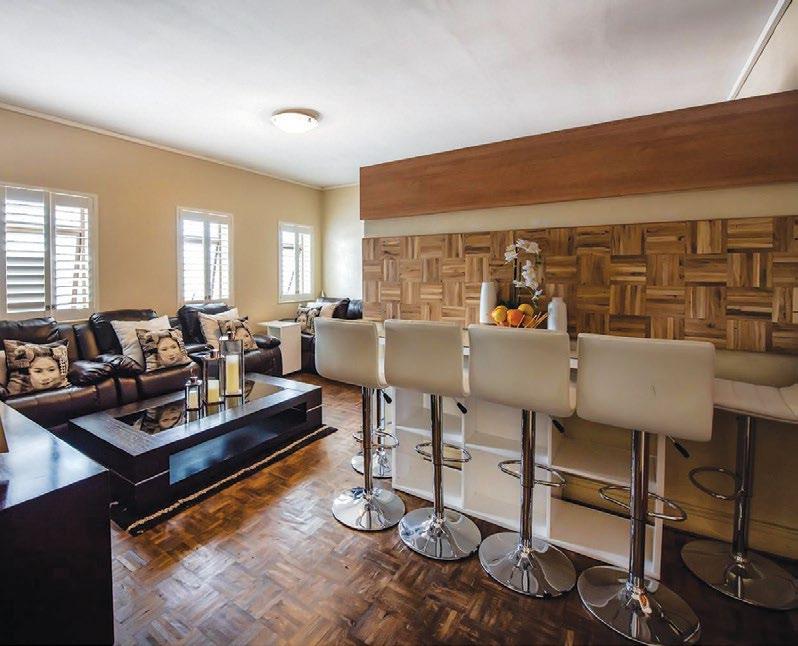
•Two double bedrooms with an en-suite bathroom complete with bath and shower. • Covered Parking bay. • Prepaid electricity

ERF: 1471m2 | HOME: 70m2 | RATES: R 450 p/m | LEVIES: R 1500 p/m
PLEASE CONTACT: Collin Mbiriri on 071 879 8564 or email cmbiriri@gmail.com or mmnyandoro@gmail.com
half way between Johannesburg and Pretoria
Bidding opens 13 th September 2023 at 10h00 & closes *from 10h00 on 14th September 2023



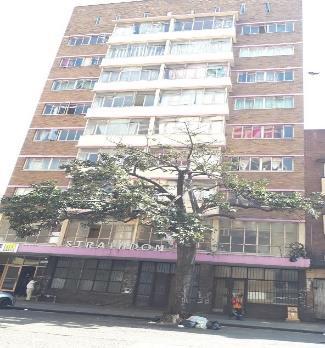

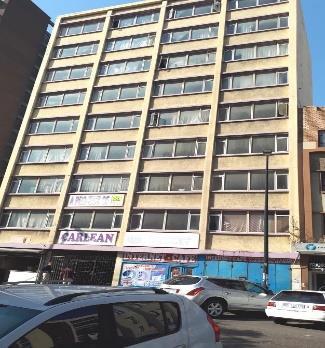

TENDER OPTIONS: Option 1 -
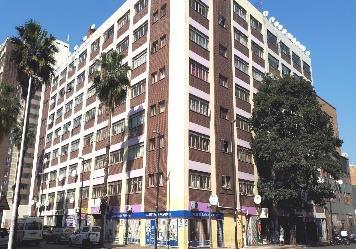

West and Hawaii East / Central together │ Option 3 - Carlean , Strathdon, Esselen Court and Weltevrede separately│Option 4 - All properties together

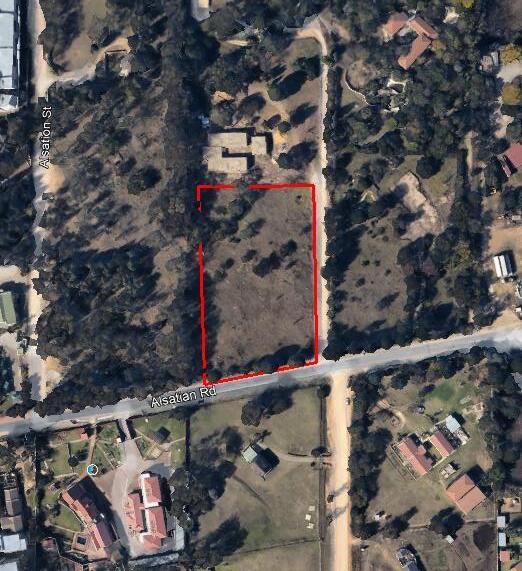
West and Hawaii East /Central separately │Option 2



DOGON GROUP PROPERTIES
Atlantic Seaboard Office 021 433 2580
thekings@dogongroup.com
www.dogongroup.com
RHONDA RAAD PROPERTIES
Cape Town Office 082 448 7795
Email: rrpsales@mweb.co.za
www.rhondaraadproperties.co.za

ASKA PROPERTY GROUP
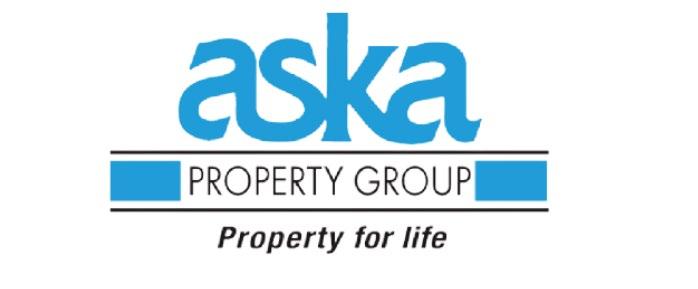
Sandown, Milnerton Estates
Office 071 604 8493
Email: corlia@aska.co.za
www.askaproperty.co.za
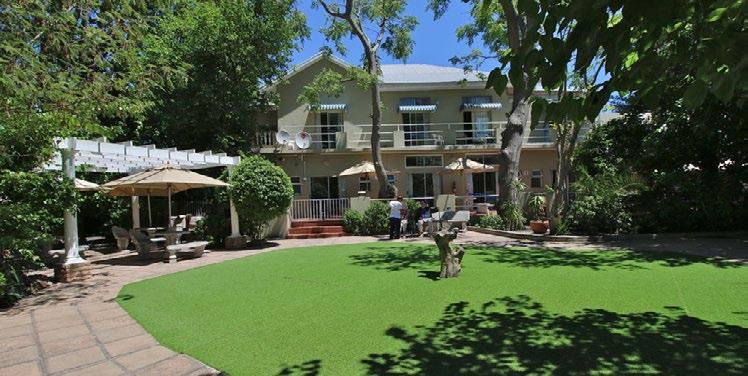
DOGON GROUP RENTALS
Sea Point Office 021 433 2580
enquiries@dogongroup.com
www.dogongroup.com
DE PLATTEKLOOF
Cape Town 060 960 0100
Email: live@deplattekloof.co.za
www.deplattekloof.co.za

IRENE PORTER PROPERTIES

Simon’s Town Office 021 786 3947
Debbie 073 140 2543
www.ireneporterproperties.co.za
DOGON GROUP PROPERTIES
Southern Suburbs, Claremont Office 021 671 0258

southernsuburbs@dogongroup.com
www.dogongroup.com
PETER MASKELL AUCTIONEERS

KZN
Office: 033 397 1190
Email: info@maskell.co.za
www.bidlive.maskell.co.za
MURAMBI HOUSE
Wynberg Office
murambihouse@telkomsa.net
www.murambi.co.za

DOGON GROUP PROPERTIES




Western Seaboard
Office: 021 556 5600 or 021 433 2580
enquiries@dogongroup.com
www.dogongroup.com
VAN’S AUCTIONEERS
Gauteng Office 086 111 8267
www.vansauctions.co.za
www.iolproperty.co.za




